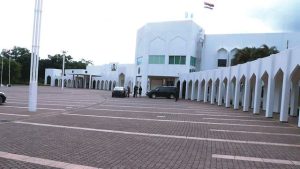
A proposal by the 10th National Assembly to allocate N110 billion for the purchase of 465 bulletproof cars and SUVs for its members and principal officials has sparked widespread outcry. The Socio-Economic Rights and Accountability Project (SERAP) has taken a stand against this extravagant plan and called on the Senate President, Mr. Godswill Akpabio, and the Speaker of the House of Representatives, Mr. Tajudeen Abbas, to reconsider their decision.
SERAP has strongly urged the leaders to repeal the 2022 Supplementary Appropriation Act, which would reduce the budget for the National Assembly by N110 billion. This move aims to reflect the current economic realities in the country and address the impact of removing fuel subsidies on over 137 million impoverished Nigerians. Instead, SERAP proposes that the funds be redirected towards addressing critical issues like the education of over 20 million out-of-school children in Nigeria.
According to reports, the proposed budget includes N70 billion allocated as “palliatives” for new lawmakers and N40 billion for the purchase of luxurious vehicles for legislators. The stark contrast between the allocation for lawmakers and the amount designated to support millions of struggling citizens has only intensified public outrage.
In a letter dated 15 July 2023 and signed by SERAP’s deputy director, Kolawole Oluwadare, the organization emphasized the need to stop this apparent conflict of interest and self-dealing among members of the National Assembly. SERAP accused the lawmakers of breaching their fiduciary duties and undermining the public trust by arbitrarily increasing their budget amid the dire economic situation faced by millions of Nigerians.
SERAP reminded the National Assembly of its constitutional obligations to prioritize the welfare of the people and promote national prosperity. By reallocating the proposed N110 billion towards education and addressing the plight of out-of-school children, the National Assembly can fulfill its duty of providing equal and adequate educational opportunities for all citizens.
The organization also stressed that education is not just a fundamental human right but also a crucial means of realizing other human rights. The misallocation of resources in favor of luxury vehicles over education could potentially constitute a violation of human rights under international law.
SERAP has given the leaders a seven-day ultimatum to respond and take appropriate action in the interest of the public. Failure to comply may lead to legal actions to enforce their demands.
As the nation watches closely, the fate of the N110 billion budget allocation hangs in the balance. The decision made by the National Assembly will not only shape the future of lawmakers’ luxury but will also have far-reaching consequences for the education and well-being of millions of Nigerian children and citizens.



